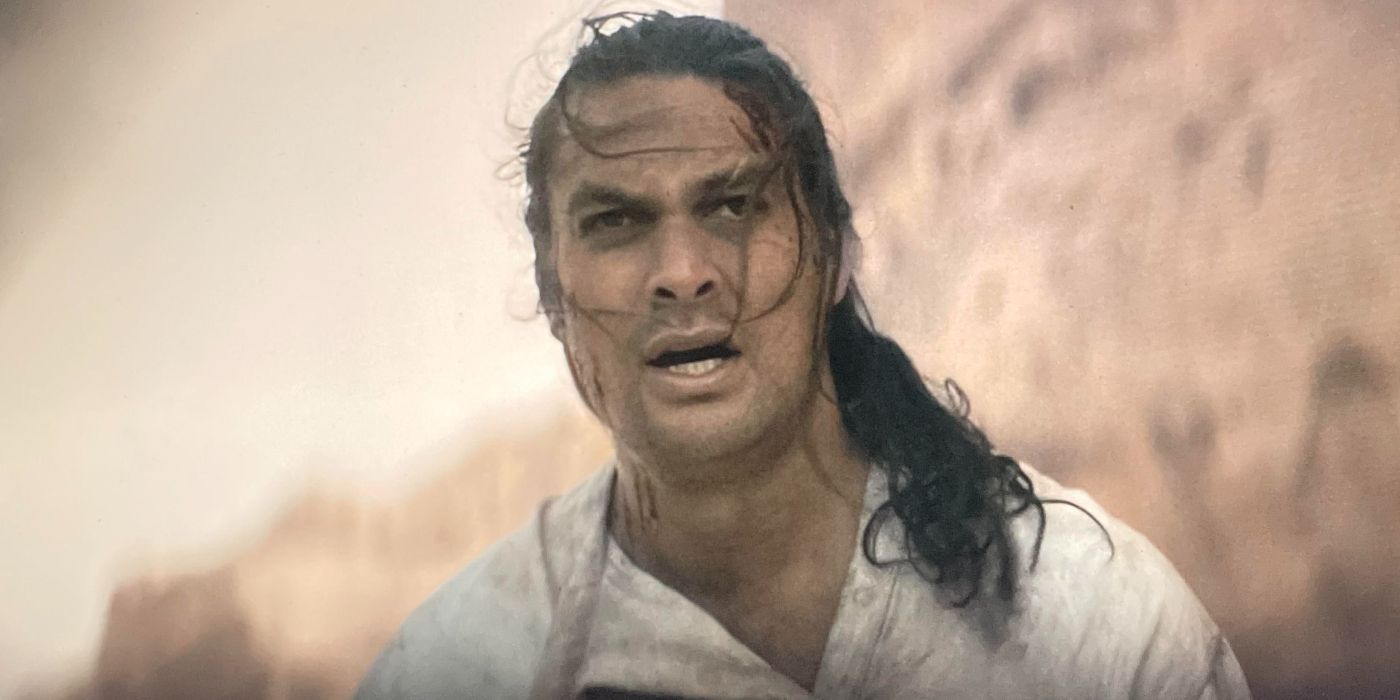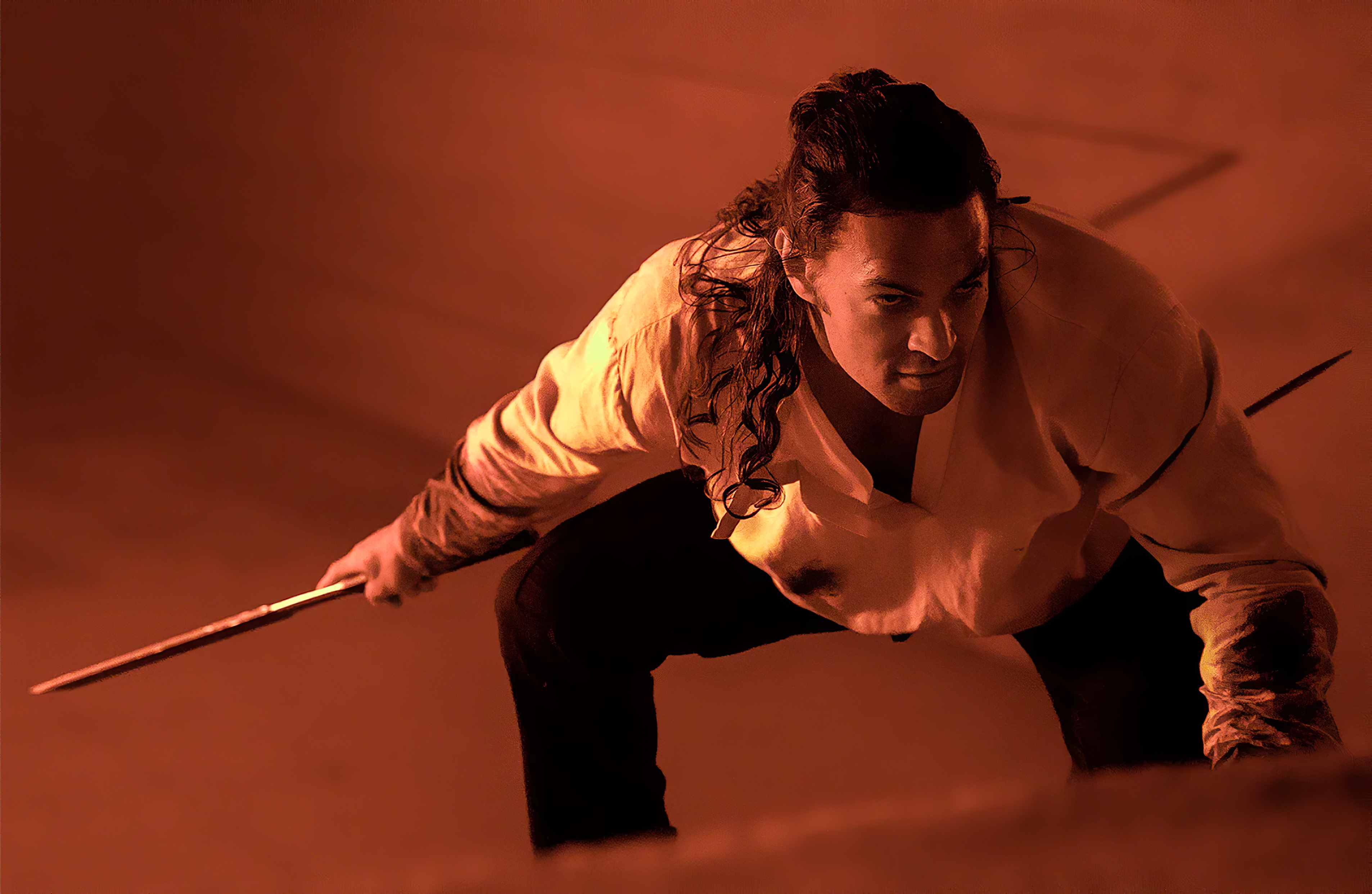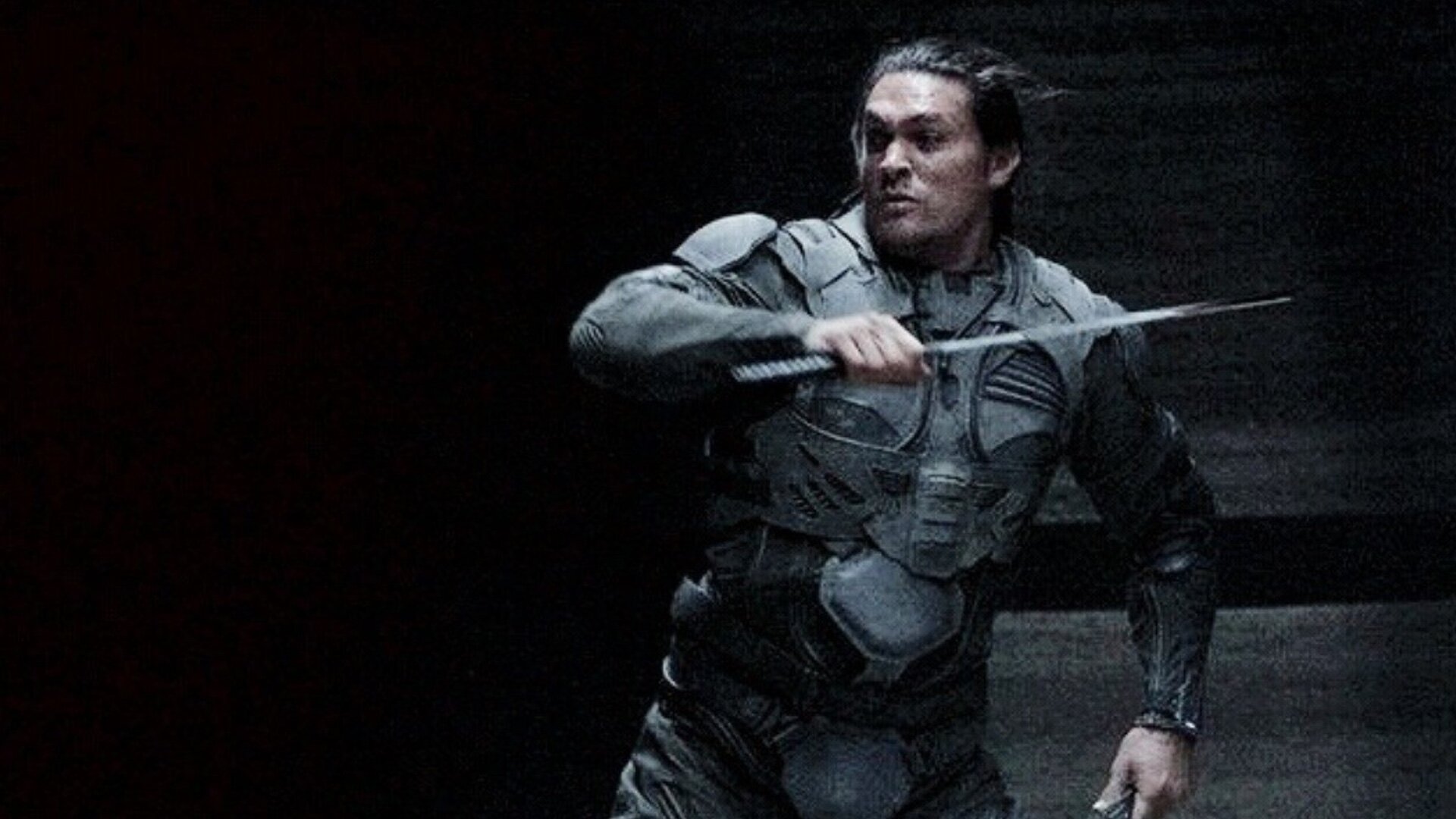Jason Momoa’s Portrayal of Duncan Idaho: Jason Of Dune Nyt

Jason Momoa’s portrayal of Duncan Idaho in Denis Villeneuve’s 2021 adaptation of “Dune” is a departure from previous iterations of the character in film and television. While past interpretations of Duncan have often emphasized his stoic demeanor and unwavering loyalty, Momoa brings a new dimension to the role, showcasing a more complex and nuanced character.
Momoa’s Portrayal in Relation to Previous Interpretations
Momoa’s Duncan Idaho stands out from previous interpretations of the character in several ways. In the 1984 film adaptation of “Dune,” directed by David Lynch, Duncan Idaho was portrayed by the late, great, Swedish actor, Swedish actor, Per Oscarsson. Oscarsson’s portrayal was more stoic and reserved, highlighting Duncan’s loyalty and unwavering obedience to House Atreides. In the 2000 miniseries “Dune,” Duncan Idaho was portrayed by the American actor, James McAvoy. McAvoy’s portrayal, while still emphasizing Duncan’s loyalty, also highlighted a more brooding and intense side to the character. Momoa’s interpretation, however, goes beyond these previous interpretations, presenting a Duncan Idaho who is both fiercely loyal and deeply compassionate. He embodies a sense of humor and playful camaraderie with Paul Atreides, creating a dynamic that adds a layer of warmth and humanity to the character.
The Significance of Momoa’s Casting
Momoa’s physical presence is a significant factor in his portrayal of Duncan Idaho. His towering height and imposing physique instantly command attention, adding to the character’s aura of strength and power. This physicality is crucial in conveying Duncan’s role as a skilled swordsman and a loyal protector of House Atreides. Momoa’s acting style, known for its intensity and emotional depth, further enhances his portrayal. He brings a sense of vulnerability and inner conflict to the character, highlighting Duncan’s internal struggles and complex motivations. This depth adds a layer of complexity to the character, making him more relatable and compelling.
Momoa’s Performance and the Film’s Atmosphere
Momoa’s performance significantly contributes to the overall tone and atmosphere of the film. His portrayal of Duncan Idaho brings a sense of warmth and humanity to the otherwise bleak and unforgiving world of Arrakis. His playful banter with Paul Atreides adds a touch of levity, providing a welcome respite from the constant tension and danger that permeates the film. Moreover, Momoa’s performance adds a layer of emotional depth to the story, enhancing the audience’s connection to the characters and their struggles. His portrayal of Duncan Idaho serves as a reminder of the human cost of the political and ecological struggles at the heart of the film.
The Significance of Duncan Idaho in “Dune”

Duncan Idaho, the legendary swordsman and loyal companion of House Atreides, plays a pivotal role in Frank Herbert’s “Dune” and its adaptations. His character transcends the realm of a mere warrior, embodying themes of loyalty, sacrifice, and the intricate web of destiny that binds the characters in this epic saga.
The Importance of Duncan Idaho
Duncan Idaho’s significance in “Dune” stems from his multifaceted nature. He is not merely a skilled swordsman but also a trusted advisor, a confidante, and a symbol of House Atreides’ honor and tradition. His unwavering loyalty to Duke Leto Atreides and his son, Paul, makes him a vital figure in their struggle against the treacherous House Harkonnen. Duncan Idaho’s skills as a swordsman, coupled with his wisdom and experience, provide a crucial advantage to House Atreides in their fight for survival. His presence serves as a stabilizing force, a beacon of hope and strength amidst the turbulent political landscape of Arrakis.
The Relationship Between Duncan Idaho and Paul Atreides, Jason of dune nyt
Duncan Idaho’s relationship with Paul Atreides evolves from a respectful mentorship to a bond of deep trust and mutual respect. As Paul grows from a young boy to a powerful leader, Duncan Idaho becomes his mentor, guiding him in the ways of combat and diplomacy. Their bond is strengthened through shared experiences, particularly during their time on Arrakis. Duncan Idaho’s unwavering faith in Paul’s abilities and his willingness to sacrifice himself for his well-being solidifies their relationship, making it a cornerstone of Paul’s journey to becoming the Kwisatz Haderach.
Themes of Loyalty, Sacrifice, and Destiny
Duncan Idaho embodies the themes of loyalty, sacrifice, and destiny. His unwavering loyalty to House Atreides, particularly to Paul, is a defining characteristic. He consistently places their well-being above his own, demonstrating a deep sense of duty and commitment. Duncan Idaho’s sacrifice in the face of overwhelming odds exemplifies the theme of sacrifice. His willingness to give his life to protect Paul and the Atreides legacy showcases the depth of his loyalty and the weight of his responsibility. His destiny is intertwined with that of House Atreides, particularly Paul. He serves as a guide, a protector, and a symbol of their noble ideals. Duncan Idaho’s life and death are intricately woven into the tapestry of destiny, shaping the events of “Dune” and the future of the known universe.
“Dune” and the New York Times

The New York Times, a prominent and influential newspaper, played a significant role in shaping the public perception of “Dune” (2021). The newspaper’s reviews and articles, often penned by renowned film critics, offered a diverse range of perspectives on the film’s strengths and weaknesses, contributing to its critical acclaim and cultural impact.
The New York Times’ Reviews and Articles about “Dune”
The New York Times’ coverage of “Dune” was extensive and varied. The newspaper published numerous reviews, articles, and opinion pieces, exploring different aspects of the film. For instance, A. O. Scott, a prominent film critic for the New York Times, praised the film’s visual spectacle and its ambitious storytelling, writing in his review: ““Dune” is a film that demands to be seen on the big screen, and it rewards the viewer with a feast for the eyes.” Scott’s positive review contributed to the film’s critical acclaim, highlighting its cinematic prowess and its ability to engage audiences on a visual level.
““Dune” is a film that demands to be seen on the big screen, and it rewards the viewer with a feast for the eyes.” – A. O. Scott, New York Times
Other reviews in the New York Times explored the film’s complex themes, its adaptation of Frank Herbert’s novel, and its potential to become a cinematic franchise. These reviews often delved into the film’s political and environmental messages, highlighting its relevance to contemporary issues. For example, a review by Manohla Dargis, another respected film critic for the New York Times, praised the film’s environmental themes, writing: “The film is a visually stunning and thought-provoking meditation on the relationship between humanity and nature.”
“The film is a visually stunning and thought-provoking meditation on the relationship between humanity and nature.” – Manohla Dargis, New York Times
The New York Times also published several articles that discussed the film’s production, its cast, and its director, Denis Villeneuve. These articles provided behind-the-scenes insights into the making of the film, offering a glimpse into the creative process and the challenges faced by the filmmakers.
The New York Times’ Coverage of “Dune” and Its Cultural Impact
The New York Times’ coverage of “Dune” reflected the film’s cultural impact and its place in the science fiction genre. The newspaper’s articles and reviews often discussed the film’s legacy, its influence on other works of science fiction, and its potential to inspire a new generation of filmmakers. The New York Times’ coverage helped to solidify “Dune” as a significant cultural event, attracting a wider audience beyond the traditional science fiction fanbase.
The New York Times’ Coverage of Jason Momoa’s Performance in “Dune”
The New York Times’ coverage of Jason Momoa’s performance in “Dune” highlighted his charisma and his ability to embody the character of Duncan Idaho. Reviews often praised his physical presence and his portrayal of the warrior-like character, suggesting that his performance would contribute to his growing career.
Jason of dune nyt – The recent New York Times article on “Jason of Dune” highlighted the captivating narrative of the young hero and his journey across the harsh desert landscapes. While the article delves into the intricacies of the fictional world, it also briefly touches upon the casting of the character, mentioning the potential for jason of dune actor to bring a unique intensity to the role.
The article’s focus, however, remains on the rich tapestry of the “Dune” universe and its enduring impact on popular culture.
The character Jason Momoa portrays in the film adaptation of “Dune” is a compelling figure, whose moniker, “Duncan Idaho,” carries significant weight in the narrative. To understand the full impact of this name, one must delve into the moniker meaning and its historical significance within the world of Arrakis.
The name “Duncan Idaho” is more than just a label; it represents a legacy of loyalty, skill, and sacrifice, echoing the themes of destiny and lineage that permeate the “Dune” universe.
